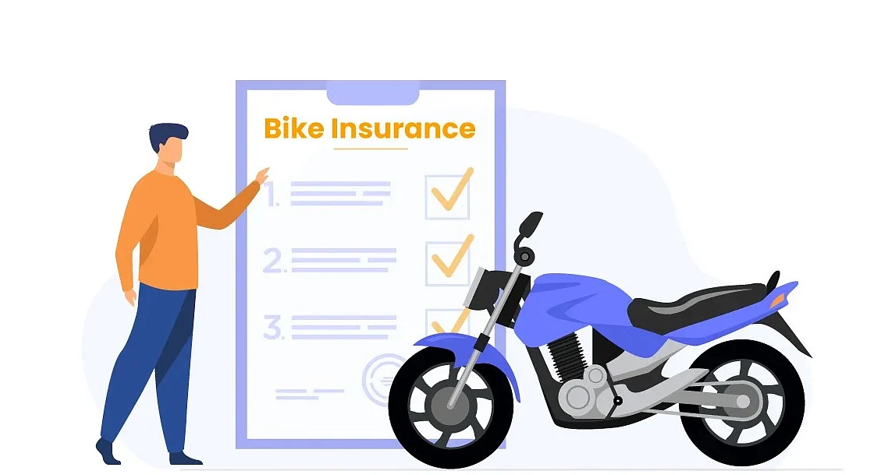Purchasing a new or used vehicle is a significant investment, and naturally, you’d want to protect it for the long run. With advertisements and dealers offering a plethora of warranty options, including those from https://extendedautowarranty.com/, it’s easy to get caught up in the buzz. But is an extended auto warranty genuinely worth the price? Let’s delve deep and see if this is an investment you should be making.
Understanding Extended Auto Warranties
Before making a decision, it’s crucial to understand what an extended auto warranty is and how it differs from a standard warranty. An extended auto warranty is a service agreement or contract that covers specific repairs and services after the original manufacturer’s warranty expires. Depending on the provider and the policy, this can include everything from engine repairs to electrical systems.
It’s worth noting that extended warranties aren’t just for new cars. Many companies offer them for used vehicles, ensuring that even if you’re purchasing a pre-owned car, you can still have a safety net in place.
The Cost Factor

One of the significant factors that deters many individuals from purchasing an extended warranty is the cost. Extended warranties can add a significant sum to the overall price of your vehicle. This cost varies depending on the type of coverage, the vehicle’s make and model, and the warranty’s duration.
Moreover, some warranties come with deductibles. This means that if your vehicle requires a repair, you’ll need to pay a set amount before the warranty coverage kicks in. While the upfront cost of an extended warranty might seem steep, for many, the peace of mind it provides is priceless.
Assessing the Need
Every vehicle and driver is different, which means the necessity for an extended warranty varies. Here are some considerations to help you decide:
- Reliability of the Vehicle: Some vehicles are known for their durability and have a low history of needed repairs. If you’re purchasing a model with high reliability ratings, you may not require an extended warranty.
- Usage: How you use your vehicle also plays a role. If you’re a frequent driver covering vast distances or often driving in harsh conditions, the likelihood of wear and tear is higher. An extended warranty could be beneficial in such cases.
- Financial Stability: If a sudden major repair could significantly disrupt your finances, an extended warranty might offer a safety cushion. This way, you’re not suddenly faced with a massive repair bill.
- Duration of Ownership: If you’re someone who changes vehicles frequently, you might not benefit much from an extended warranty. However, if you intend to keep your car for an extended period, past the original warranty, the extended option can be a wise choice.
The Fine Print
Like any other contract, extended warranties come with their terms and conditions. It’s essential to understand what’s covered and what isn’t. Some warranties are comprehensive, covering almost all aspects of the vehicle, while others might only cover specific components.
Another thing to consider is where the repairs can be made. Some warranties might require you to visit specific service centers or dealerships, which could be inconvenient if you move or if there isn’t a nearby authorized service center.
Lastly, some contracts come with added perks, such as roadside assistance or rental car provision while your vehicle is in the shop. Depending on your lifestyle and needs, these can be valuable additions.
Alternative Options
For those not keen on the idea of an extended warranty, there are alternatives. Some individuals opt to set aside a certain amount of money monthly or annually for potential vehicle repairs. This self-made “warranty fund” can then be used if and when a major repair is needed. The benefit here is that if you don’t end up using the money for repairs, it remains with you and can be utilized for other purposes.
Another option is to invest in regular maintenance and servicing. By ensuring your vehicle is in tip-top shape, you can potentially avoid major repairs down the line. Regular checks can identify and rectify minor issues before they become significant problems.
Extended Warranty vs. Insurance
A common misconception among car buyers is equating an extended auto warranty with auto insurance. While they might seem similar on the surface, they serve different purposes. Auto insurance primarily covers accidents, theft, or damage from natural causes, ensuring protection against unforeseen external events. An extended warranty, on the other hand, provides coverage for internal mechanical breakdowns and defects after the manufacturer’s warranty lapses.
Understanding this distinction is crucial. Auto insurance is mandated by law in many regions, while an extended warranty is a choice left to the discretion of the car owner. Both, however, offer a layer of financial protection, albeit in different circumstances.
Transferability and Resale Value
A lesser-known advantage of some extended warranties is their transferability. If you decide to sell your vehicle before the warranty expires, you can often transfer the remaining warranty to the new owner. This can be a valuable selling point. Prospective buyers might be more inclined to purchase a vehicle knowing they’re protected against potential mechanical failures.
Furthermore, having an active extended warranty can increase the resale value of your vehicle. It signifies that the car has likely been well-maintained and any potential issues would be addressed under the warranty.
The Role of Technology in Modern Cars
With the rise of technology, cars today are vastly different from their predecessors. Modern vehicles come equipped with intricate electronic systems, touchscreens, sensors, and advanced drivetrains. While these advancements enhance the driving experience, they also bring about a new set of potential issues that weren’t common in older models.
When considering an extended warranty, think about the technological components of your car. Repairing or replacing complex electronic systems can be costly. If your vehicle boasts numerous high-tech features, an extended warranty that covers these electronic components might be a wise investment.
Debunking Common Myths

There are several myths associated with extended auto warranties, and busting these can aid in making an informed decision.
Myth: Any repair shop can fix my car under warranty. Reality: Not necessarily. Some warranties stipulate that repairs must be made at authorized centers or dealerships. It’s essential to know this beforehand to avoid out-of-pocket expenses.
Myth: Extended warranties cover every part of the car. Reality: Coverage varies. Some warranties might exclude specific components or systems. It’s imperative to read the contract carefully to understand what’s included and what isn’t.
Myth: If I never use it, I’ve wasted my money. Reality: This is a matter of perspective. Many people buy warranties for peace of mind, and that in itself can be worth the investment, even if they never use it.
Is It the Right Choice for You?
In the world of vehicles and their warranties, there isn’t a one-size-fits-all answer. The decision to invest in an extended auto warranty boils down to personal preferences, needs, and the specific vehicle in question. It’s about weighing the potential risks and rewards and determining what feels right for your financial and personal situation.
Evaluating Your Drive for Assurance
An extended auto warranty can either be a financial safety net or an unnecessary expense. By understanding what it offers, comparing it against your vehicle’s reliability and your driving habits, and assessing your financial landscape, you can make an informed decision. Remember, it’s not just about potential repairs; it’s about the peace of mind and confidence as you navigate the road ahead.






